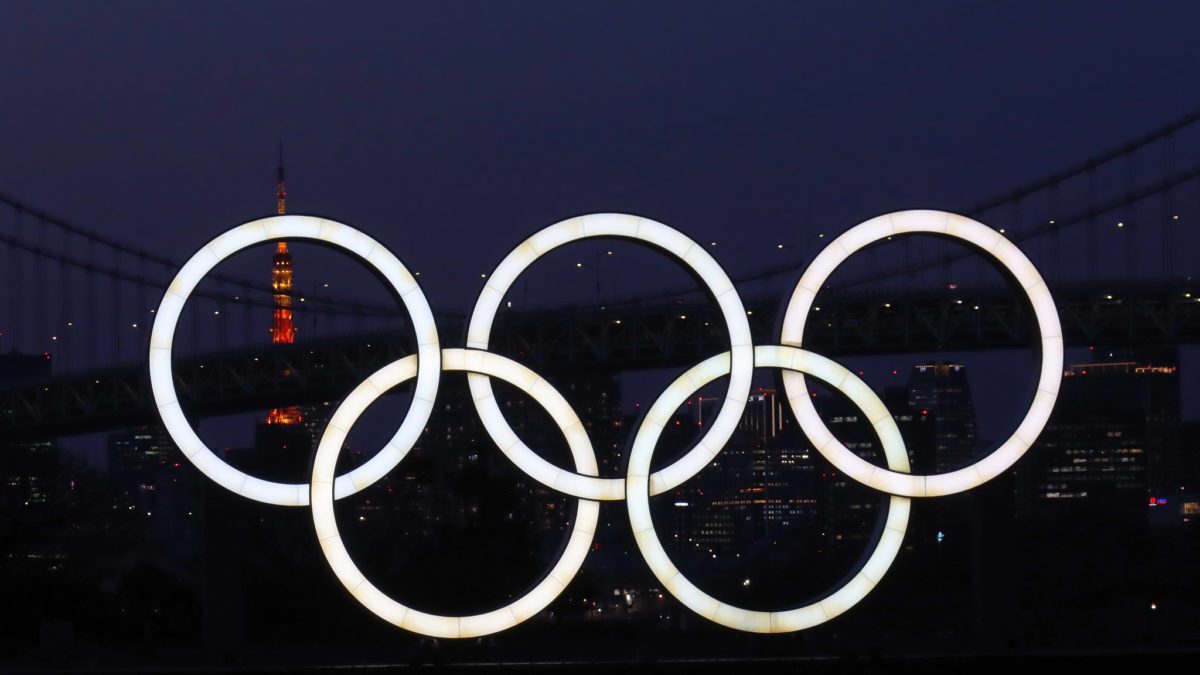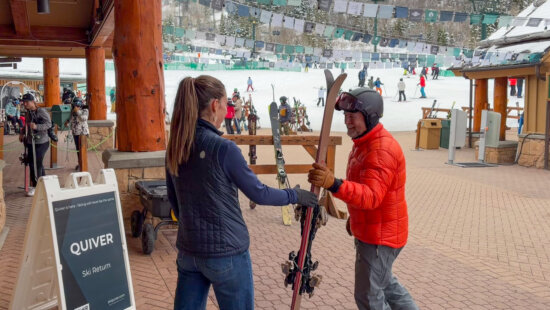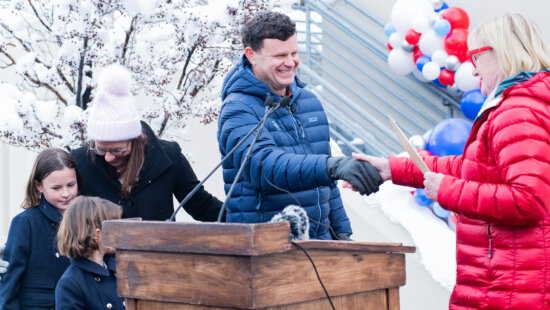News
Olympic Closing Ceremony had pomp but circumstance

Tokyo 2020 Olympic rings with Rainbow Bridge and the Tokyo Tower in the background. Photo: Matthias Harbers/Flickr
TOKYO, Japan. — International Olympic Committee (IOC) president Thomas Bach declared, in the Tokyo 2020 Closing Ceremony, the Games of the 32nd Olympiad closed, and with that, the flame in the Olympic cauldron was extinguished. But not before the art and heart of Japan was performed proudly. Those traditional elements were woven through the fabric of a nontraditional Games punctuated by the pandemic dictating that Olympians were mandated to return to their home nations 48 hours following their competition completion. Thus many were unable to attend the Closing Ceremony.
Utahn’s who were allowed to attend included three, bronze medal-winning women’s soccer players, two silver and bronze medal-winning men’s basketball players, and one silver medal-winning men’s baseball player.
Rudy Gobert comes from and therefore represents France and Joe Ingles comes from and therefore represents Australia in Olympic basketball, that is when they’re not in Salt Lake City playing for the Utah Jazz. The Jazz will welcome them back as medal-winners with Team France getting silver and Team Australia getting bronze.
Salt Lake City winter Olympic diehards welcome Eddy Alvarez as one of their own having skated at the Utah Olympic Oval for USA Speedskating and winning a silver medal for Team USA in Sochi 2014. Alvarez just became one of only three Americans to have a medal in the winter and summer Games as his USA baseball team also got the silver.
Becky Saurbrunn, Christen Press, and Kelley O’Hara are former members of the Utah Royals FC soccer team. They also, having won bronze in Tokyo within the prior 48 hours were allowed to attend the Closing Ceremony.
Unable to attend were Utahn Olympians who’d competed in women’s gymnastics, women’s swimming, men’s soccer, men’s beach and indoor volleyball, women’s rugby, women’s mountain biking, men’s track and field, and men’s sport climbing as Nathaniel Coleman and his silver medal missed that Closing Ceremony cutoff of 48 hours by a mere few.
After the flags of Greece, traditionally carried in first, and the Olympic Refugee Team were walked into the stadium, the remainder of the flags followed by all the international allowed athletes enter. Cattywampuss, they laugh, cry, snap selfies, high-five, and dance unofficially. They then dance more officially as they are regaled with kimono-clad traditional dancers and drummers.
The diverse athletes in the stadium represented their counterparts including the youngest of the Games at 12 and the oldest at 66, both women. Women comprised a full 49% of the athletes in Tokyo, a record statistically for gender equality. Another record was set as the most, 93 National Olympic Committees (NOC)s, countries won medals out of the 206 represented.
Those medals were crafted out of recycled electronic devices. Devices held by the athletes in the Closing Ceremony were utilized in a very 2021 techno-visual fashion in the Tokyo sky. The final medals of the Games were, within the Closing Ceremony handed out by IOC Vice President, American Anita DeFranz to the men’s marathon podium. DeFranz, a rowing bronze-medalist, was one of the first sport-dignitaries to grace Utah with her presence and her spirit of fun-loving bravery when she rode a passenger bobsled at the Utah Olympic Park soon after the track had been homologated.
Life-time office-holding Bach, a Fencing Olympic Champion, distributed the medals to the women’s podium marathoners before he addressed the COVID-relatively small crowd. He said, “Dear athletes, For the first time since the pandemic started, the entire world came together as one and you were able to give them something a precious gift, hope.” He added that people around the globe were, as the Tokyo motto read, United By Emotion.
Bach said, “We gave the world, solidarity, hope, and peace. We did it, together.”
The Olympic flag was lowered, handed to the Tokyo governor who handed it to Bach who handed it to the mayor of Paris, the Host City of the 2024 Summer Games.
A broadcast display of welcoming gestures ensued with engaged wheels of BMX riders and wheelchairs alike through the streets of Paris ending with the French President Macron saying the newly-adopted evolved motto of the Olympic Games, ‘Faster, Higher, Stronger, Together.’
Then back in Tokyo, one word was brightly shining atop the stadium of the Closing Ceremony as a thank you to the world, ARIGATO.
The Tokyo 2020 Paralympics begin on August 24 and will be broadcast on the networks of NBC, including, for the first time in primetime.
Above, the IOC made a slight, subtle, and without much fanfare but world-rattling and historic change within the Olympic cycle of the Tokyo 2020 Olympic Games. The official Facebook page title and the most grammatically accepted literal global term had been ‘Olympic’, singular, as in Salt Lake City 2002 Olympic Games, Olympic Venue Deer Valley, Olympic Athlete Ted Ligety, Olympic Village at the University of Utah, Olympic Memorabilia Root’s hat or Olympic Volunteers from Park City. Each Olympic Games is, in its own right, a legal, sovereign entity overseeing its own micro and macrocosms of development, branding, infrastructure, safety, communications, human resources, marketing, equity, sustainability, merchandising, feasibility, fairness, and ultimate execution thereof. The IOC simply provides continuity. Heretofore, although rarely enforced and barely enforceable, the usage of the plural was considered in many a sport circle to be informal and inaccurate if not incorrect. In an apparent act of acquiescence, the word has been updated and arguably upgraded to the colloquialism of ‘Olympics.’


















